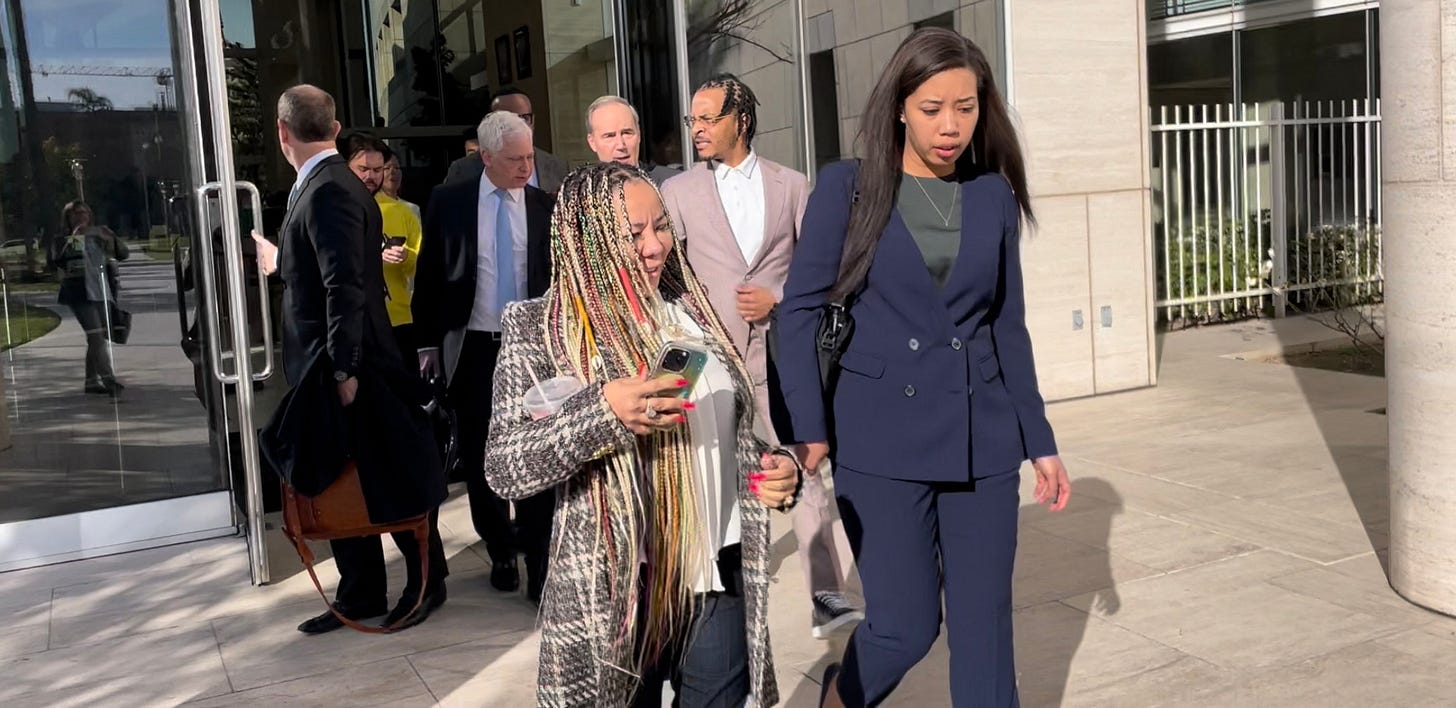Amid racism fight, judge’s ruling could drastically change re-trial in MGA’s lawsuit with T.I. and Tiny
A busy week on the legal beat includes criminal charges against Tom Girardi, Harvey Weinstein's motion for new trial and an unusual dustup over a rejected plea deal.

The contentious trade theft civil case pitting MGA Entertainment against hip-hop artists T.I. and Tiny Harris shows no sig…


